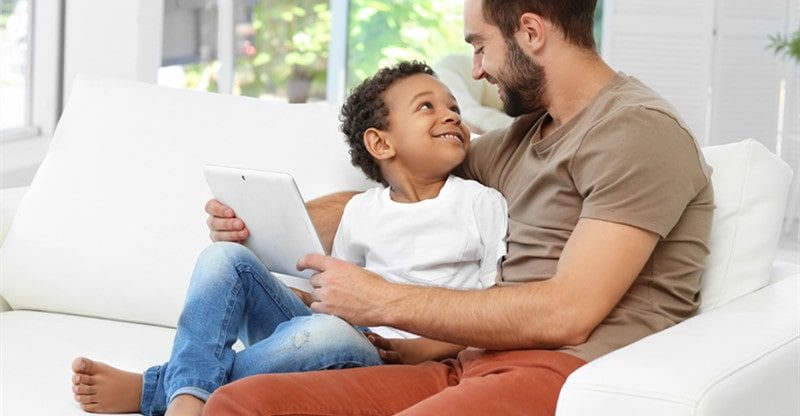20 Things to Buy to Prepare Your Home for a Foster Child
Foster parenting is a rewarding journey that requires a lot of dedication and preparation. When you become a foster parent, your main responsibility is to provide a safe, loving environment for a child who is no longer able to live with their birth family either on a short-term or long-term basis.
If you’re going through the process of becoming a foster parent or are considering applying, then one of the most important parts of the initial process before the child arrives at your home is to make sure that you have all the necessary items to meet their needs and provide a safe, comfortable space for them.
Keep reading to find out more about 20 essential items you’ll need to have when becoming a foster parent to ensure that your foster child has an easy transition to your care. It can act as a quick checklist of things to do to make sure that you and your home are ready.
It’s important to bear in mind that each individual child has different needs, so this list is just a starting point, and you may need to add to it depending on your child’s unique requirements.
Safety and Health Supplies
If you are interested in fostering in Wales, then you will need to ensure that you can provide a safe environment for a foster child. Your main priority needs to be the safety and wellbeing of the child in your care. Some of the most important items to ensure you have before welcoming a foster child into your home are as follows:
1. Fire extinguisher and smoke detector: These items are essential when it comes to making sure that your home is safe in the event of a fire. Get a smoke alarm fitted in your home if you do not already have one and test it regularly to ensure it works correctly. A fire extinguisher should be placed in an easy-to-reach place, and make sure that you know how to use it.
2. First-aid kit: Accidents can happen at any time, so it’s important that you’re prepared for it. Make sure that your home has basic first-aid supplies that are stored somewhere easy to reach.
3. Child-proofing items: Consider the age of the child you are going to foster; you may need to invest in some child-proofing items for your home. Young children can be naturally curious, so it’s important to ensure that they don’t accidentally hurt themselves getting into something they shouldn’t. Make sure that you have items such as stair gates, outlet covers, and cabinet locks.
4. Car seat or booster seat: If you are fostering a child who is legally required to have one, you will need to ensure that they have a properly installed booster seat or car seat in your vehicle. Choose one that is appropriate for their age, height, and weight.
5. Medications: Have a supply of over-the-counter medications that your foster child may need, such as child-appropriate painkillers or antihistamines.
Clothing and Personal Care Items
Clothing and personal care items may be something that you want to purchase more of once the child is in your care and you can shop for them together. Once you have the foster child in your care it’s also easier to buy these kinds of items as you know what size to get, and what their likes and dislikes are. However, there are some basics you can get to start them off with.
1. Clothing: Buy some basic clothes that are appropriate for the child’s age and gender. Start with a basic wardrobe and add to it as you get to know the child and what they like to wear. Be sure to have the basics, such as underwear, t-shirts, and a warm coat if your foster child will be arriving in the winter.
2. Nappies and wipes: If you are going to be fostering a baby or toddler who is still in nappies, make sure that you have a sufficient supply in your home.
3. Hygiene products: Get necessary hygiene products such as shampoo and soap. Choose products that are kind and gentle on the skin.
4. Dental care products: Good oral hygiene is essential for your foster child’s health and wellbeing, so make sure that they have their own toothbrush and toothpaste from the start. Depending on the age of the child, you may want to get flavoured toothpaste that is designed to taste nicer to encourage kids to brush.
5. Towels: Make sure that your foster child has their own towels to use for bathing and showering.
Note that agencies and social care services will ensure that the child comes to you with some basics, but it’s good to have your own too.
Home Items and Furnishings
Part of creating a safe and comfortable environment for your foster child involves preparing them their own bedroom in your home. To create a space your foster child is going to love, you will need the following:
1. Bed and bedding: Provide a comfortable bed and mattress for your foster child. The type of bed will depend on the age of the child you’re fostering. A cot or toddler bed will be appropriate for younger kids, while kids who are a little bit older may appreciate a high sleeper. A small double bed will work well for a pre-teen or teenager.
2. Storage: Storage furniture for clothes and other items is essential for a foster child’s bedroom. Provide them with a wardrobe for their clothes, a bedside table, and drawers or storage cubes for their other belongings.
3. Desk and chair: If you are going to be fostering a child who is of school age, it’s important to provide them with somewhere comfortable to do homework and other educational activities.
4. Age-appropriate toys and books: Entertainment and stimulation is crucial for the healthy development of your foster child, so provide them with books, toys, and other activities to enjoy. You may want to start with the basics and add more to the collection as you get to know your foster child and what they’re into.
5. Nightlight: It’s common for some children to feel scared at night, so having a soft nightlight in their bedroom can help your foster child feel safer in your home. You can provide a basic lamp or go for a light projector that creates whimsical light patterns on the ceiling for a calming touch.
Emotional and Developmental Needs
Many foster children go into the care of a foster parent having experienced complex and distressing situations in their past. You may be caring for a child who has been traumatised through neglect, abuse, or other traumatic experiences. It’s important to be prepared for supporting them through this. While the most important thing you can do is be there for them and provide security, there are some items you can purchase that can help.
1. Journal or diary: A journal or diary can be a great place for your foster child to write and express their feelings.
2. Art supplies: Consider getting some art supplies for your foster child, such as paints, colouring pencils, and colouring books. Art can be beneficial for children of any age as a therapeutic process that helps them manage stress and process their emotions through self-expression.
3. Puzzles and games: Games and puzzles are not only fun to do, but they can also help with the emotional and developmental needs of a foster child. They can be a great way for your child to relax and have fun, helping them to cope better with stress and find healthy outlets.
4. Cultural items: If you are fostering a child who is from a different culture of your own, then it’s important to ensure that they can continue immersing themselves in the culture that they are used to. Find books, toys, videos, and other items that reflect the child’s cultural background and allow them to see themselves reflected in the images and stories around them.
5. Sensory items: Children who have experienced trauma, or children who have additional needs such as autism may benefit from sensory items such as weighted blankets, fidget spinners, squishy, soft stuffed toys like Squishmallows, and noise cancelling headphones or earplugs.
Preparing Your Home to Welcome a Foster Child: A Checklist
Once you’ve got everything you need, it’s time to start preparing your home for the arrival of your foster child. You will need to do the following:
- Make sure that your home is safe and clean
- Childproof any hazardous areas of your home such as kitchens, bathrooms, and staircases
- Make sure that you’re stocked up on any essentials
- Make sure that you have installed any necessary safety equipment such as outlet covers or a car seat
- Prepare the child’s bedroom, making sure that it’s comfortable, clean and safe
- Review any rules or expectations you will put in place for the child and make sure that they’re age appropriate
- Inform your family and close friends about the foster child’s arrival
- Make sure that you’re emotionally prepared
- Communicate and coordinate with social workers or the foster agency
Fostering a child is a big responsibility, so it’s important to make sure that all your bases are covered. Hopefully, this list has helped you get ready for the rewarding experience that comes with opening your home and heart to a foster child.



